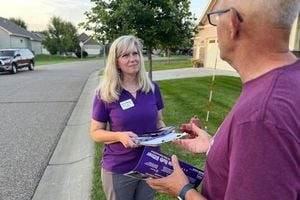Idaho has taken the unprecedented step of blocking its public health department from administering COVID-19 vaccinations, a decision made by the Southwest District Health Board. This ruling, confirmed on October 22 during a tight 4-3 vote, has made Southwest District Health the first regional public health department to impose such restrictions, leaving residents of six counties along the Idaho-Oregon border without access to the vaccine.
The board's choice is significant, not just for Idahoans, but for public health practices across the nation. Vaccinations, especially those against COVID-19, have remained central to health department services, but this decision marks a shift particularly noteworthy during the pandemic. While other states like Texas have seen policy shifts such as bans on health departments promoting vaccines, this move goes much farther by outright banning the vaccine's administration.
Dr. Perry Jansen, the medical director of the Southwest District Health, testified at the board meeting advocating for the continued availability of COVID-19 vaccines. He emphasized the necessity of vaccinations: "Our request of the board is to carry and offer those vaccines, recognizing the discussions of risks and benefits. This is not a blind, everybody-gets-a-shot approach. This is a thoughtful approach." Despite his pleas, the board faced overwhelming public sentiment against the vaccination program, reflected by over 290 public comments received.
Interestingly, board chairman Kelly Aberasturi, who himself harbors skepticism toward COVID-19 vaccinations and public health authorities, expressed regret over the board's decision, stating his disappointment. "This is where we should be stepping in and helping. I’ve been homeless...so I understand how difficult it can be when you're trying to get by and get ahead," he noted, pointing to the vulnerable population served by the health department, which includes the unhoused, homebound, and residents of long-term care facilities.
The region has seen diminishing interest in COVID-19 vaccines, illustrating changing attitudes toward vaccination since the pandemic began. Reports show only 64 vaccines have been administered this year compared to 1,601 early on during the pandemic. Factors influencing this decline may include widespread vaccine misinformation and hesitancy.
Public health experts, such as Adriane Casalotti from the National Association of County and City Health Officials, expressed bewilderment over the board's decision. "I'm not aware of anything else like this," Casalotti stated, noting health departments have ceased vaccine administration due to financial constraints rather than rejecting the medical efficacy of the vaccines. She pointed to the need for accessibility, especially for individuals reliant on public health services.
Critics argue this ban could set dangerous precedents, potentially leading to additional restrictions not only on COVID-19 but also on other vaccines. Dr. Jansen and others have suggested there should be more open discussions around the vaccinations and healthcare options rather than outright bans.
Idaho’s overall vaccination trends reveal concerning statistics — the state boasts the highest childhood vaccination exemption rate nationwide. This has already had real-world consequences, as seen last year when public health officials scrambled to control a rare measles outbreak affecting ten individuals. This background adds weight to the current restrictions and emphasizes the fragility of public health frameworks.
Those left without access to the vaccine through the public health department can still seek vaccinations at other community health centers, albeit with potential travel and financial challenges for uninsured populations. AJ McWhorter, spokesperson for the Idaho health department, declined to engage with specifics about the board's recent decision but reiterated the availability of vaccines at other facilities.
Continuing with the community focus, Aberasturi has indicated plans to revisit the board's decision at the next meeting, focusing on whether older patients and those at long-term care centers might be allowed access to vaccinations moving forward. Encouragingly, he has expressed the desire for the board to reflect on its role concerning the health and well-being of residents genuinely relying on the public health infrastructure.
This move, taken against the backdrop of increasing skepticism surrounding vaccine endurance and science, might catalyze shifts not just within Idaho but serve as templates for health policy discussions nationally. For many residents, particularly individuals with fewer resources, such decisions about vaccine availability may pose grave health risks.
Overall, the ban raises broader questions about how local governance intersects with public health mandates. Questions remain about the impact of misinformation, the influence of public sentiment on health policy, and the future of vaccinations across the nation as similar debates gain traction. The dialogue surrounding vaccines, once part of scientific consensus, now appears traversed by political winds and personal beliefs, underlining the need for constant healthcare education and advocacy.



